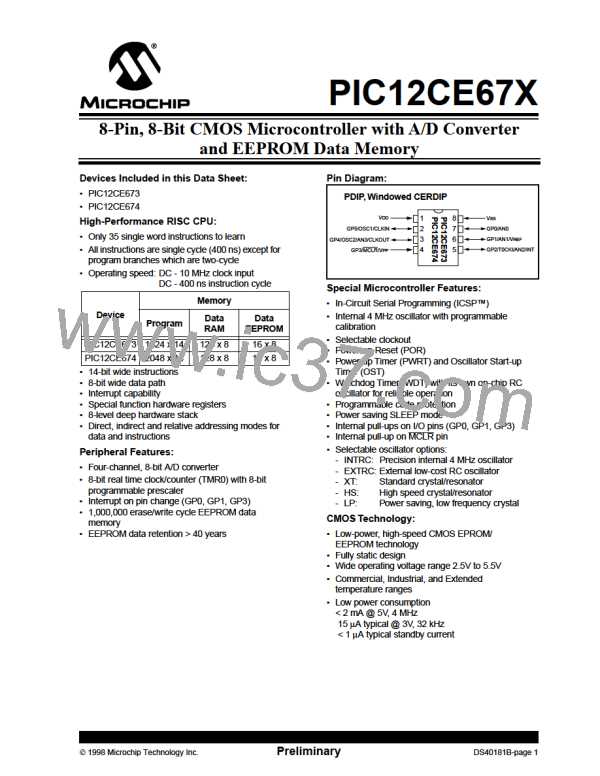PIC12CE67X
10.1.3 PCL AS SOURCE OR DESTINATION
10.1
Special Function Registers as
Source/Destination
Read, write or read-modify-write on PCL may have the
following results:
The PIC12CE67X’s orthogonal instruction set allows
read and write of all file registers, including special
function registers. There are some special situations
the user should be aware of:
Read PC:
PCL → dest
Write PCL:
PCLATH → PCH;
8-bit destination value → PCL
10.1.1 STATUS AS DESTINATION
Read-Modify-Write: PCL→ ALU operand
PCLATH → PCH;
If an instruction writes to STATUS, the Z, C and DC bits
may be set or cleared as a result of the instruction and
overwrite the original data bits written. For example,
executing CLRF STATUSwill clear register STATUS, and
then set the Z bit leaving 0000 0100bin the register.
8-bit result → PCL
Where PCH = program counter high byte (not an
addressable register), PCLATH = Program counter
high holding latch, dest = destination, WREG or f.
10.1.4 BIT MANIPULATION
10.1.2 TRIS AS DESTINATION
All bit manipulation instructions are done by first read-
ing the entire register, operating on the selected bit and
writing the result back (read-modify-write). The user
should keep this in mind when operating on special
function registers, such as ports.
Bit 3 of the TRIS register always reads as a '1' since
GP3 is an input only pin.This fact can affect some read-
modify-write operations on the TRIS register.
DS40181B-page 62
Preliminary
1998 Microchip Technology Inc.

 MICROCHIP [ MICROCHIP ]
MICROCHIP [ MICROCHIP ]